#OscarsSoWhite, Hollywood diversity woes loom over Academy Awards
Movies with cast evenly divided between white, non-white actors did best at box office: UCLA study
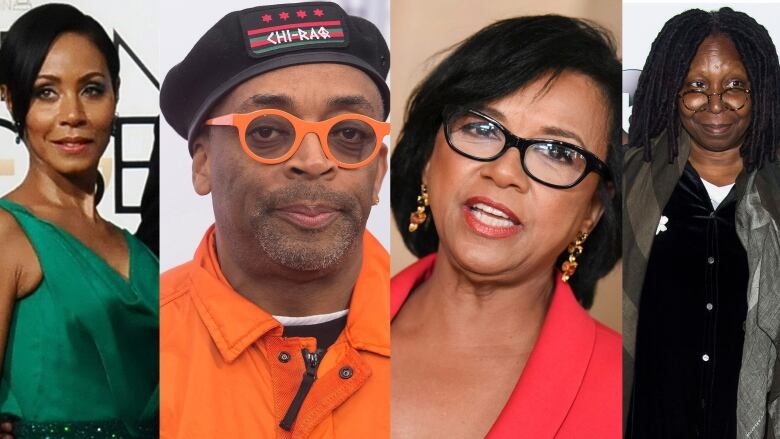
The #OscarsSoWhite controversy looms large over this weekend's Academy Awards, but Hollywood stars say they're ready to move beyond the chatter towards actual change in their industry somethingmovieaudiences seem to want, too.
Lack of diversity has been ubiquitousfor "the 40 years I've been in the business," noted Emmy-winning actress Alfre Woodard, recently honoured for her career achievement at a sold-out tribute event during the Toronto Black Film Festival.
"People start to cry foul not just people of colour and not just women, but our boys, our young, white boys. They know when things don't seem as real as they do on the streets of Vancouver, on the streets of Calgary or Toronto,"the film, television and stage performertold CBC News.
Certain movies can seem "like an alternate universe," she said.
- Oscars' lack of diversity contributes to wider racial bias, experts say
- Why #OscarsSoWhite may have it wrong about racism and the academy
"We see more people of colour, more people of diverse gender and sexual orientation and economic situations, but not in a realistic way. Not in the way that we're naturally diverse in life and in our communities and our cities," Woodard said.
Diversity means bigbox office: study
Film audiences are apparently gravitating towards more diversity onscreen: movies that feature a cast evenly divided between white and non-white lead actors make the biggest splash at the box office, according to an annual report released Thursday from UCLA's Ralph J. Bunche Center for African American Studies.
Now in its third year of a planned five-year series, the latest review analyzed median global box office dataand industry statistics from 2014, comparing groupings of films: zero non-white lead actors against those with one, two, three, four, and five and over.
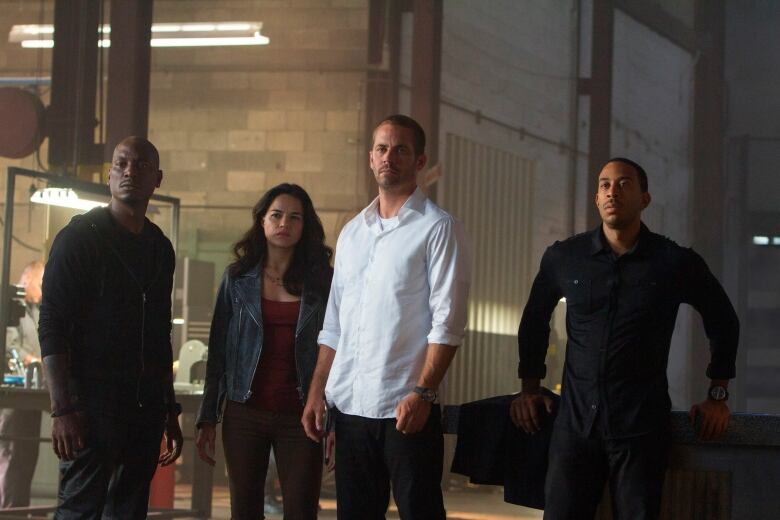
While not every single top-grossing film that year featured a diverse cast, researchers found that, overall,the movies in which four of the eight top-billed actors were non-white made the most money at the box office.
There'sa disconnect between what's being made and what audiences want.- Darnell Hunt, study co-author and UCLA professor
Nearly 40 per cent of Americans identify as people of colour (black, Latino, Asian, Pacific Islander) and more than half the U.S. population is female.
Movie audiences today are looking for stories that reflect themselves, but women and people of colour remain dramatically underrepresented, said Darnell Hunt, one of the report's authors, director of the Ralph J. Bunche Center and professor of sociology at UCLA.
"There'sa disconnect between what's being made and what audiences want,"he said.
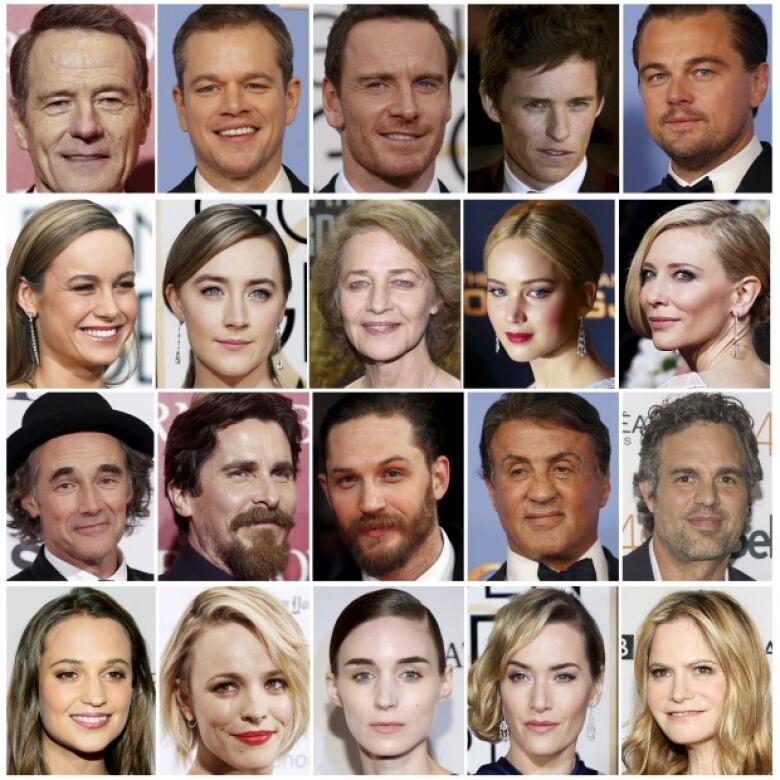
The Los Angeles Times' famous, painstaking 2012 investigation into the membership of the Academy of Motion Picture Arts and Sciencesfound the institution behind the Oscarsto beoverwhelmingly white, older and male (94 per cent Caucasian, 77 per cent male and of a median age of 62) an "almost a perfect reflection of what the industry looks like in terms of decision-makers," Hunt noted.
"You're talking mostly white men, who come from a particular cultural experience. They have track records they know how to make certain types of projects. It's a very risky industry, lots of money is at stake. So they tend to surround themselves with people they've worked with before,"he said.
"Maybe they went to school with these people, they feel comfortable with them. They have similar backgrounds, similar biographies, similar tastes. And they tend to make the same types of films over and over again films that don't tend to include women and people of colour, certainly not in lead roles and it's certainly not going to be their stories. That's why we see the same projects being made, even though the handwriting's on the wall: that's not necessarily what an increasingly diverse audience wants."
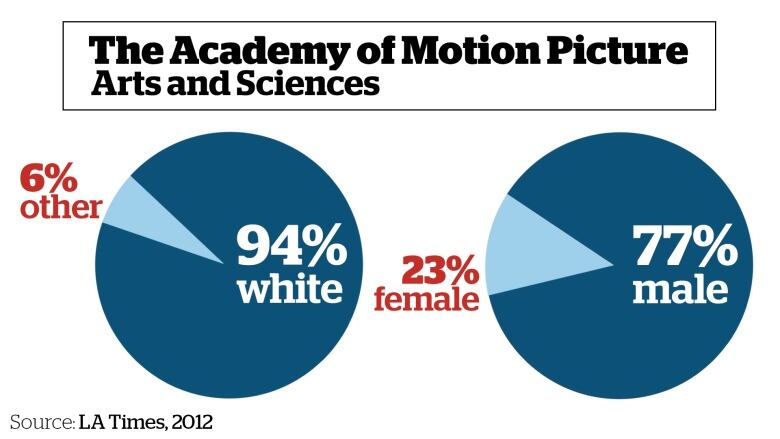
Academy's decisive changes
Widespread criticism of a second consecutive year of an all-white slate of Oscaracting nominees sparked swiftaction from the film academy's governing board.
- Oscars diversity controversy spurs academy to promise change
- #OscarsSoWhitecontroversy prompts changes to film academy
Among other changes, the group hit fast-forward on already-in-the-works diversity efforts and withdrew voting rights from "inactive"industry members (decisions that ultimately sparked their own backlash).

The academy hasalso enlisted a wide-ranging list of presenters for this year's telecast, including music mogul Quincy Jones, TV actress Sofia Vergara, musicians John Legend and Common, comedian Kevin Hart, talk show host Whoopi Goldberg and actors Morgan Freeman and Kerry Washington.
But the Oscar organizers have been uncharacteristically quiet of late.
Chris Rock isgonnaannihilate every one of us in the first 20 minutes of the show, and it will be well worth watching.-Harvey Weinstein to The Hollywood Reporter
The last days ramping up to the Academy Awards typically see insiders giving a flurry of interviews to promote viewership of the gala, but this year they're remaining mum, everyone from this year's acerbic host Chris Rock to academy officials like president Cheryl Boone Isaacs to telecast co-producer Reginald Hudlin (BET's former president of entertainment, NAACP Image Awards executive producer and a director-producer whose credits range from Django Unchained to Modern Family and The Office).
Hudlin and co-producer David Hill's choice last fall of comedian, actor and filmmaker Rock was prescient. Who better to address the#OscarsSoWhite controversy than someone who blasted Hollywood as "a white industry"in a 2014 essay and whose2005 stint as Oscars MCwas filled with blisteringly honest bits skewering celebrities and the glitzy awards themselves as being out of touch with what the public really enjoys at the movies?
"Chris Rock is gonna annihilate every one of us [studio heads and distributors] in the first 20 minutes of the show, and it will be well worth watching. It will be an Oscars to remember," movie mogulHarvey Weinstein told industry publication TheHollywood Reporter this week.
Reflecting reality onscreen and off
However, after years of lamenting Hollywood's poor track record with female and minority cast and creators,what performers and creators are hoping to see come out of this latest furor is anindustryshift towards more accurately reflectingreality.
"It's so much more than just a black-and-white issue,"said actor Stephan James, a young,rising star from the Toronto area currently seen in the sports biopic Race.
"There are issues of ageism in Hollywood, issues of sexism... So it's really a bigger discussion."
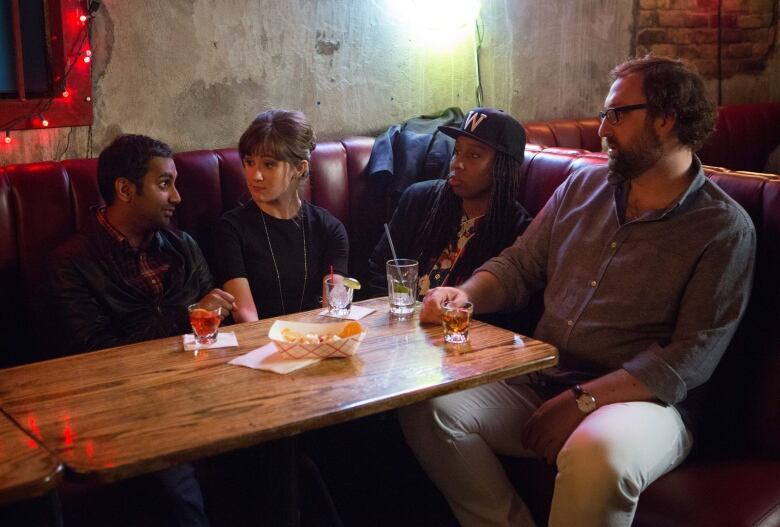
More inclusivecasting ismost visible and easily tracked, butmany have noted that changes must also come behind the scenes as well, with more screenwriters, filmmakers, producers, studio heads and talent agents hailing from different backgrounds and ethnicities.
"It's cool to throw an Asian in the show, throw a black lady in the show. But it also needs to be behind the camera. You want to be the ones telling the stories,"said Alan Yang, who co-created and shares show-running duties for the widely praisedNetflix series Master of None with Aziz Ansari.
"It's one thing to have diverse characters in the show, but in some ways it's a lot better to have that really be an authentic voice," he told CBC News.
The film and television industry "imagines itself as a very liberal landscape, but it actually isbecause of an unconscious creative cowardiceone of those last bastions of inaccessibility"among North American businesses,Woodard said of the industry's institutionalized prejudices.
Regardless, sheadvocatesplowing ahead no matter what andfinding any way to tell the stories one desires.
"If you are a person of colour, if you are a woman, if you are an LGBT person, if you are a Caucasian person without money and access and connection, whatever that is, the world is not going to open up for you,"Woodard noted.
"But that's beside the point. You find a way in. You let nothing stand between you and the ability for you to deliver the gift. If I was sitting around waiting for Oscars all this time, I wouldn'thave accomplished anything."
With files from Kim Brunhuber and The Associated Press













_(720p).jpg)


 OFFICIAL HD MUSIC VIDEO.jpg)
.jpg)



























































































